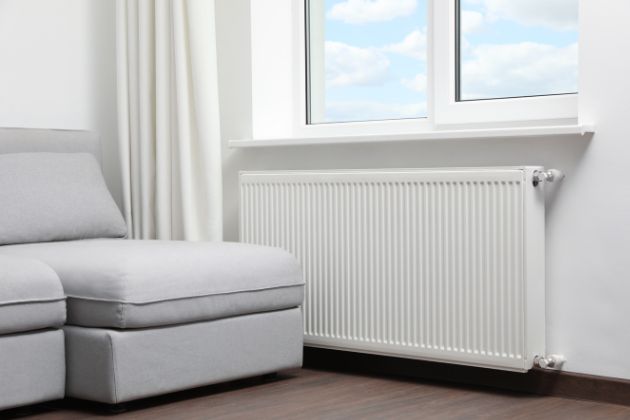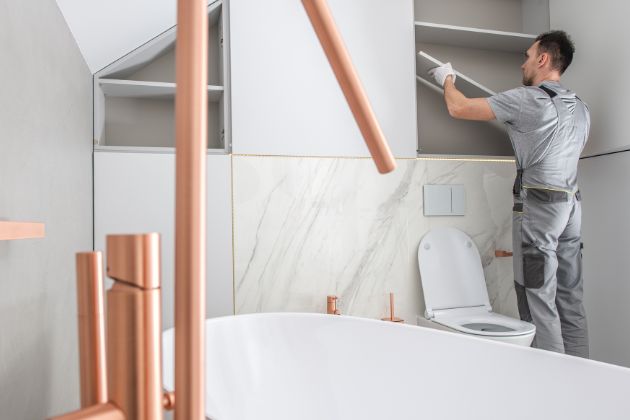Why Is My Radiator Leaking?
A leaking radiator can quickly escalate from a minor inconvenience to a major household headache. Whether you're dealing with a central heating system or a vehicle cooling mechanism, radiator leaks are a critical issue that demands immediate attention. These seemingly small problems can compromise the entire thermal regulation system, potentially leading to expensive damage and reduced efficiency.
Radiator leaks are more than just an annoying drip. They represent a potential threat to your home's heating infrastructure or your vehicle's engine performance. From microscopic corrosion to significant physical damage, these leaks can stem from multiple sources, each requiring a specific diagnostic and repair approach.
Common Causes of Radiator Leaks
The top causes of leaky radiators include:
Corrosion and Rust
Radiator leaks often stem from corrosion and rust within the system. Over time, the constant exposure to moisture, heat, and contaminants in the coolant or heating fluid can degrade the metal components of your radiator. This process is particularly aggressive in older systems or those that haven't been properly maintained. As corrosion progresses, it weakens the metal, creating small pinholes or cracks through which fluid can escape.
Manufacturing Defects and Physical Damage
Even new radiators aren't immune to leaks. Manufacturing defects, though rare, can result in weak spots or improperly sealed joints that may fail under normal operating conditions. Physical damage is another culprit, often caused by road debris impacting the radiator or accidental damage during maintenance. In some cases, severe overheating can cause the radiator to crack, leading to leaks.
Pressure Buildup
Excessive pressure within the cooling or heating system can force fluid out through weak points in the radiator. This issue is more common in older systems where components have degraded over time, or in poorly maintained systems where pressure relief mechanisms may be faulty. Pressure buildup can occur due to blockages in the system, malfunctioning thermostats, or issues with the radiator cap.
Valve and Gland Issues
Radiator valves and glands are common leak points. The valve, which controls the flow of water into the radiator, can develop leaks around its connection to the radiator or within the valve body itself. Gland leaks typically occur where the valve spindle enters the valve body. These issues often result from wear and tear, improper installation, or damage during adjustment.
Hose and Fitting Problems
The hoses and fittings connecting your radiator to the rest of the system are potential weak points. Over time, hoses can degrade, becoming brittle or developing cracks. Fittings may loosen due to vibration or thermal expansion and contraction. Regular inspection of these components is crucial, as they're often the easiest to spot and fix before a minor leak becomes a major problem.
Identifying the Source of the Leak
Visual Inspection
Begin by thoroughly examining your radiator and its surrounding components. Look for signs of wetness, discolouration, or mineral deposits, which often indicate a leak's origin. Pay close attention to seams, joints, and connection points. For car radiators, check the core for any signs of damage or corrosion. In home heating systems, inspect the valves, pipes, and the radiator body itself.
Checking the Radiator Valve and Gland
To check for valve and gland leaks, first ensure the system is cool. Inspect the area where the valve connects to the radiator. If you see water or dampness, the problem likely lies in the valve connection. For gland leaks, look for water seeping from under the plastic cap on the valve's spindle. In some cases, simply tightening the gland nut with a spanner can resolve the issue.
Preventive Maintenance
Regular Inspections
Schedule a routine inspection schedule with a heating engineer for your radiators:
1. Check for signs of corrosion or damage every six months.
2. Inspect hoses and fittings for wear or looseness.
3. Look for any signs of leakage or dampness around valves and connections.
4. Test the system's pressure regularly to ensure it's within the manufacturer's specifications.
Maintaining System Pressure
Proper system pressure is crucial for preventing leaks:
1. Check the pressure gauge regularly (for pressurised systems).
2. Top up the system as needed, following manufacturer guidelines.
3. Bleed radiators to remove air, which can cause pressure imbalances.
4. Ensure the expansion tank is functioning correctly in closed systems.
By following these steps and maintaining vigilance, you can significantly reduce the risk of radiator leaks and extend the life of your heating or cooling system.
FAQs
What are the most common causes of radiator leaks?
The most common causes of radiator leaks include corrosion, physical damage, manufacturing defects, pressure buildup, and issues with the radiator valve or gland.
How can I temporarily fix a radiator leak?
You can use radiator stop-leak products or retighten the coupling nut on the radiator valve as a temporary fix.
How do I replace the olive in the radiator valve?
To replace the olive in the radiator valve, you need to drain the system, loosen the nut, remove the old olive, and replace it with a new one, applying silicon sealant or PTFE tape before reconnecting.
What should I do if the leak is coming from under the plastic cap of the valve?
If the leak is coming from under the plastic cap of the valve, you should use PTFE tape to seal the gland by wrapping it around the spindle and forcing it into the body of the valve with silicone grease.
Why is regular maintenance important for radiators?
Regular inspections and maintenance are important for radiators to help prevent leaks by identifying and addressing potential issues early.
Contact our heating engineers for help
The team at Pipeline Plumbing Services Ltd work across the areas of Pulborough, Storrington, Arundel, Billingshurst, Petworth, Horsham, Chichester and Worthing.
We’re always here to help, so if you’d like to arrange a repair or just have a question for us then don’t hesitate to get in touch.
You can call us on 01903 740538 or 07871 725133, or send a message via our website contact form.




